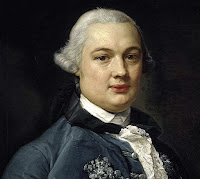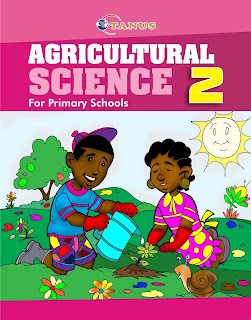A Story from Southern Africa
"*Gogo?" Thobeka was the first to break the silence around the fire that night.
Gogo looked at the most curious of her grandchildren with a broad smile.
"Yes, my dear one," she answered.
“Gogo, I know that Bhubesi the Mighty Lion, is king of all the land animals. Is he also king of the birds?”
"Ah, that is an interesting question, Thobeka."
The children sensed a story coming and drew even closer together.
"You are right when you say that Bhubesi the Lion is the king of all the land animals.
“As for the birds, well, I will have to tell you about the time they decided to have a leader of their own . . . “
“Kwasuka sukela. . . ." Once upon a time ...
Some time after God the Creator had finished making the beasts of the sea, land, sky, and was busy putting the finishing touch to His work by creating Humans, the great Nkwazi (nkwah'-zee) the Eagle called a meeting of all the birds. And they came: from the Flamingo to the Weaver, from the Warbler to the Owl, they all came.
"I have asked you all to be here for a very important reason. As you all know, the Great Bhubesi the Lion is the king of all the beasts of the land.
“But he dare not speak for us, the great winged creatures of the air!” Nkwazi the Eagle continued, “It is therefore my suggestion that we choose from among us a bird to be our leader!"
The chattering resumed as the birds turned to one another to discuss the idea.
"Ah-hem!" Nkwazi the Eagle cleared his throat once more; he waited until he had the attention of all present.
"As I am the most majestic and regal bird present, I suggest that I, Nkwazi the great Eagle, should be chosen as the King of the Birds! No, I insist that I will be!"
A great deal of mumbling began from all parts of the gathering. Then one voice rose above the others, demanding attention.
"Yes, Nkwazi, you are indeed majestic." It was the voice of sKhova (skoh'-vah) the Owl.
"However, I actually think that I should be the king of the winged creatures. You see, I have the largest eyes of any of the birds. I can see everything that happens, and that makes me very wise. It is wisdom we need in a leader more than stateliness."
Again, a low murmur went through the crowd until a third voice demanded attention.
"I accept sKhova's wisdom and Nkwazi's regal bearing. However, I would propose that I should be chosen as king of the birds."
Ngqithi (ng*ee'-tee) the Kori Bustard walked to the centre of the circle as he spoke. "I am the largest of all the winged kingdom. Certainly strength is an important factor in leadership?!"
All the birds began to speak at once. Some threw their support behind Nkwazi the Eagle, others were convinced sKhova the Owl should be the king, while others preferred the Kori Bustard.
Finally, after a long period of arguing, a little voice was heard rising above the confusion.
"Excuse me. Excuse me, please!" It was Ncede (n~ay'-day) the tiny Warbler. He was so small and hardly noticeable that he was easily overlooked.
Finally, the crowd became silent and allowed the little bird to have his say.
"If we are going to choose a king of the birds, well, I think it should me!" Ncede the Warbler declared.
It was agreed that on the first day after the full moon, all the birds would gather again. They would meet on the open field when the sun was high in the sky.
When the sun touched the tallest tip of the mountain, the birds would take off and become airborne. The bird who could then fly the highest and touch the hand of God would become the king.
On the appointed day the birds assembled. Patiently, they watched the sun make its way down from the sky.
At the exact moment when the sun touched the tallest peak of the mountain, all the birds rose into the air.
It was a magnificent sight to see!
Now, little Ncede the Warbler was there. He was determined to prove that he had just as much right as anyone else to the throne and with it, title of King of the Birds.
But, he also knew that his little wings could not lift him very high and far. He had therefore come up with a special plan.
Just before the birds took off, Ncede the Warbler silently crept underneath the wing of the mighty Nkwazi the Eagle. He carefully pushed his way deep down into Nkwazi the Eagle's largest feathers, who was so busy concentrating on the descent of the sun, he didn't feel a thing.
Higher and higher the birds soared. The little ones fell out of the race after only a short distance and, slowly, they drifted back down to earth to watch the bigger and fitter ones.
Before long, only three of the birds remained in the contest.
Nkwazi the Eagle, sKhova the Owl and Ngqithi the Kori Bustard fought to see who would claim the prize, and with it, the title of King of the Birds.
They were so tired, but they pushed on, higher and higher. The strain was too much for sKhova the Owl, and with a resigned "Hoo-hoo," he dived back towards firm ground.
Now, it was Nkwazi the Eagle and Ngqithi the Kori Bustard.
Up and up they went, closer and closer to the hand of God. But no matter how much he tried, the feat was too much for the heavy Kori Bustard, the largest of the birds.
After a final effort with his mighty wings, Kori Bustard called out to Nkwazi the Eagle: "Ah, my friend, it seems you are the winner. I can go no further."
This admission seemed to temporarily strengthen the very tired Nkwazi the Eagle, who gathered his last bit of strength and climbed beyond Ngqithi the Kori Bustard.
"Wheeeee-whee-whee!" The victorious sound of Nkwazi the Eagle's call filled the sky.
“Not so fast, Nkwazi!”, chirped Ncede the Warbler, as he shot out from under the mighty bird’s wing where he had been hiding, “you have not won yet!”
And with that, Ncede the Warbler rose above Nkwazi the Eagle towards the hand of God.
No matter how hard he tried, Nkwazi the Eagle just didn't have the strength left to climb any higher. With a groan, Nkwazi the Eagle allowed himself to begin gliding down to earth.
Now, in the meantime, all the birds below had watched what was taking place and were annoyed by Ncede the Warbler's trickery, and as he returned to earth, he did not find the royal welcome he had expected.
Instead, every bird in the kingdom was ready to pluck the feathers from little Ncede the Warbler's back. But, the quick little bird saw their anger and quickly flew into a deserted snake hole.
"Come out, Ncede!" snapped Ngqithi the Kori Bustard. "Come out and get the prize, or rather the punishment, that you deserve!"
"Yes!" echoed all the other birds. "Come on, Ncede! Where's your brave face now?"
But Ncede the Warbler stayed hidden.
The birds guarded the hole until long after sunset, waiting for Ncede the Warbler to show his face. All through the night they waited, thinking and hoping that Ncede the Warbler had to come out for food or water soon. In the morning, Ncede the Warbler had still not appeared.
"Listen," said Nkwazi the Eagle, "I am getting hungry. We do not all need to guard the hole. I suggest we take turns until the little joker decides to come out!"
Everyone agreed, most of them terribly tired by now.
"I am not yet tired nor hungry," volunteered sKhova the Owl. "I do not mind taking the first watch. Just make sure that someone comes back in an hour or so to take over from me!"
A quick roster was drawn up and everyone, except sKhova the Owl, went off to sleep or hunt for food. sKhova the Owl was used to being still and waiting for his prey. He waited and waited for what seemed to him forever.
Finally, he decided to close just one of his eyes.
"After all," he thought, "even one of my eyes is bigger than both eyes on any other bird and can see better!” sKhova the Owl closed his right eye and peered into the dark hole with his left eye.
Several minutes later, sKhova the Owl decided to switch and so he opened the right eye and closed the left. This went on for quite a while, until one time sKhova the Owl forgot to open the right eye when he closed the left!
There he was, both eyes closed! And he fell fast asleep.
Now, this was the moment Ncede the Warbler had been waiting for, and before the chance was lost, he shot out of the hole and disappeared into the forest.
Nkwazi the Eagle, who was on his way to take over from sKhova the Owl, saw the little creature escape, and cried out.
He went to sKhova the Owl and found the bird in a deep sleep.
"Wake up, you fool!" Nkwazi the Eagle shouted at sKhova the Owl. "You fell asleep and Ncede the Warbler escaped!"
Well, sKhova the Owl was so embarrassed by his mistake that, to this day he sleeps during the day and hunts at night so that none of the other birds will remind and tease him about having been caught sleeping on the job.
As for Ncede the Warbler, he hides out in the forest, flittering from here to there, never stopping anywhere long enough to get caught.
"So, Gogo," Thobeka asked, when several moments of silence had passed, "who then became the king of the birds?"
"That, my child," Gogo looked at her grand-daughter with a smile, "no one knows. I think they are arguing to this day about the position!"
*Gogo is the affectionate name for ‘Granma’ in the isiZulu and most languages in South Africa.
Notes: * = "q" in Zulu is a "click" sound made by drawing the tongue down sharply from the palate. ~ = "c" in Zulu is also a click sound. It is the sound made when the tip of the tongue is drawn away from the back of the front teeth. Similar to the click of exasperation made in most European countries.
http://www.softschools.com/
The kori bustard (Ardeotis kori) is the largest flying bird native to Africa. It is a member of the bustard family, which all belong to the order Otidiformes and are restricted in distribution to the Old World. It is one of the four species (ranging from Africa to India to Australia) in the large-bodied Ardeotis genus. In fact, the male kori bustard may be the heaviest living animal capable of flight.
This species, like most bustards, is a ground-dwelling bird and an opportunistic omnivore. Male kori bustards, which can be more than twice as heavy as the female, attempt to breed with as many females as possible and then take no part in the raising of the young. The nest is a shallow hollow in the earth, often disguised by nearby obstructive objects such as trees.
The African yellow warbler is a medium sized warbler in which the whole of the upperparts and tail are yellowish-brown, with a slightly browner crown and yellower rump. The wings have brown feathers edged with yellow. The underparts are bright yellow with an olive wash on the sides of the breast, flanks and lower belly. The bill is pale on the upper mandible and blackish on the lower and the legs are blackish. Females have duller underparts, the juvenile are similar to the males but are buffier. The total length is 13 cm and the birds weigh between 10g and 15g





























